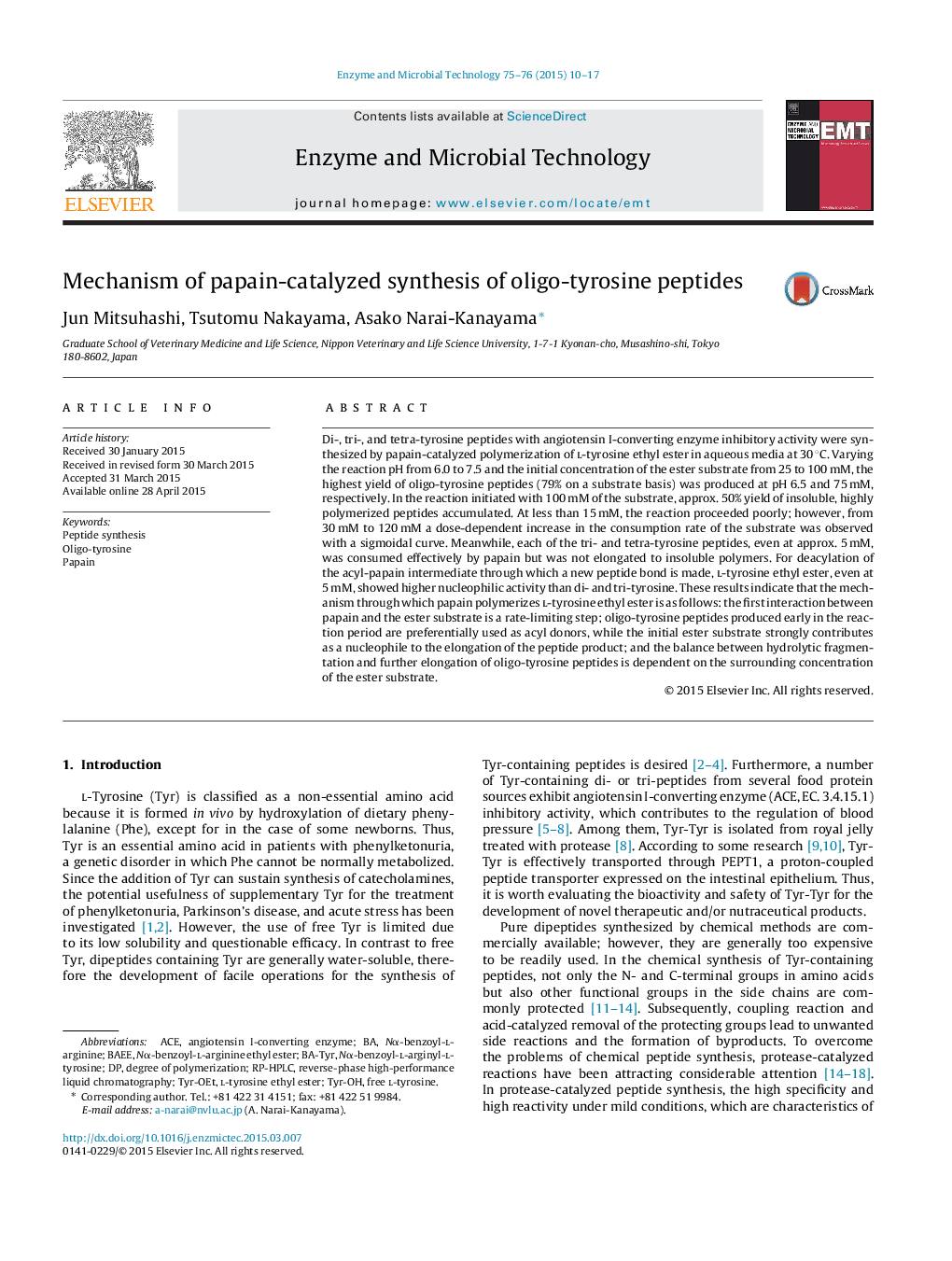| Article ID | Journal | Published Year | Pages | File Type |
|---|---|---|---|---|
| 16974 | Enzyme and Microbial Technology | 2015 | 8 Pages |
•Oligotyrosines (oligo-Tyr) are potential bioactive peptides.•Oligo-Tyr can be synthesized by papain-catalyzed reaction with tyrosine ethyl ester.•The initial substrate concentration has a great influence on the yield of oligo-Tyr.•We kinetically analyzed the reaction and proposed its mechanism for the first time.•Understanding the mechanism would allow effective synthesis of oligo-Tyr.
Di-, tri-, and tetra-tyrosine peptides with angiotensin I-converting enzyme inhibitory activity were synthesized by papain-catalyzed polymerization of l-tyrosine ethyl ester in aqueous media at 30 °C. Varying the reaction pH from 6.0 to 7.5 and the initial concentration of the ester substrate from 25 to 100 mM, the highest yield of oligo-tyrosine peptides (79% on a substrate basis) was produced at pH 6.5 and 75 mM, respectively. In the reaction initiated with 100 mM of the substrate, approx. 50% yield of insoluble, highly polymerized peptides accumulated. At less than 15 mM, the reaction proceeded poorly; however, from 30 mM to 120 mM a dose-dependent increase in the consumption rate of the substrate was observed with a sigmoidal curve. Meanwhile, each of the tri- and tetra-tyrosine peptides, even at approx. 5 mM, was consumed effectively by papain but was not elongated to insoluble polymers. For deacylation of the acyl-papain intermediate through which a new peptide bond is made, l-tyrosine ethyl ester, even at 5 mM, showed higher nucleophilic activity than di- and tri-tyrosine. These results indicate that the mechanism through which papain polymerizes l-tyrosine ethyl ester is as follows: the first interaction between papain and the ester substrate is a rate-limiting step; oligo-tyrosine peptides produced early in the reaction period are preferentially used as acyl donors, while the initial ester substrate strongly contributes as a nucleophile to the elongation of the peptide product; and the balance between hydrolytic fragmentation and further elongation of oligo-tyrosine peptides is dependent on the surrounding concentration of the ester substrate.
